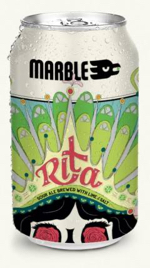 When I was a beginning ultrarunner living in the San Francisco Bay Area of California between 2000 and 2005, I spent long days and nights training out on the Western States 100 course with many of the old timers of the sport. Just about every year, at the end of our last training run before the race, typically two or three weeks prior, we would gather around our cars. Spontaneously, as the conversation was drawing to a close, someone would say, “Well, everyone, see you in Squaw!” and we ll went around the circle, passing along the greeting to one another. Over the years, the saying became symbolic to many of us of the hopes and dreams that Western States 100 so powerfully represents.
When I was a beginning ultrarunner living in the San Francisco Bay Area of California between 2000 and 2005, I spent long days and nights training out on the Western States 100 course with many of the old timers of the sport. Just about every year, at the end of our last training run before the race, typically two or three weeks prior, we would gather around our cars. Spontaneously, as the conversation was drawing to a close, someone would say, “Well, everyone, see you in Squaw!” and we ll went around the circle, passing along the greeting to one another. Over the years, the saying became symbolic to many of us of the hopes and dreams that Western States 100 so powerfully represents.
Fast forward a few years later to the emergence of Twitter, and, specifically, the origin of the hashtag. In the summer of 2009, after completing my sixth Western States, I posted a message on Twitter about the race and commented on how excited I was for the next year’s race. I concluded the tweet with the hashtag #seeyouinsquaw. It was the first time I had ever used it.
As a result of this seemingly innocent occurrence, current Western States race director, Craig Thornley, credits/blames me for “inventing” the “See You In Squaw” saying. Over the past decade or so, it has caught on with many ultrarunners, especially those who have been chosen to run Western States. When I first began using the hashtag, I did so due to the personal meaning the expression had for me in my life and not for any political or social reason. But recently, I have come to grips with the problems with the use of the word “squaw.”
Earlier this year, I received a very thoughtful email from Clare Gallagher, 2019 Western States champion. Clare had been discussing the hashtag with iRunFar’s Meghan Hicks and Meghan suggested Clare reach out to discuss it with me. In her email, Clare shared with me the commentary she wrote for the Trail Sisters blog on the topic and asked me to consider the significance of using a word that is racist and deeply offensive to not only indigenous women but to all women.
I reflected on Clare’s comments and thought long and hard about them over these past few months. This summer, as I have witnessed the United States erupt into angry and sometimes violent protests against racism, injustice, and inequality, I couldn’t help but think that I was perpetuating those notions with the use of the offensive hashtag. On top of that, I looked on as colleges and universities, cities and towns, and large and small companies all grappled with their racist pasts and took actions to make amends. Then, just a few weeks ago, Squaw Valley itself, the ski area at the start of the Western States course and the home of the 1960 Winter Olympics, announced that they would be changing their name.
I must admit, I originally clung to the use of the hashtag, citing the history of the place name and my personal relationship with the phrase, rather than the offensive and derogatory nature of the term. But, as the significance of the term sunk in and I began to open my eyes to its deeply damaging nature and the problem with perpetuating it, I came to realize that it was time for #seeyouinsquaw to go by the wayside of history.
So, dear friends, #seeyouatstates!
AJW’s Beer of the Week
This week’s Beer of the Week comes from the Marble Brewery in Albuquerque, New Mexico. Their margarita-inspired Rita Sour-Gose is simply summer in a can. Flecked with orange peel and lime puree, this fruity, salty delight is a feast for the senses, and one of the most unique beers I have tasted.
Call for Comments
Like AJW shares here, have you or are you grappling with the renaming of a place or event to help bring your community to a new level of respect for all people? Can you share a little of that parallel journey?

